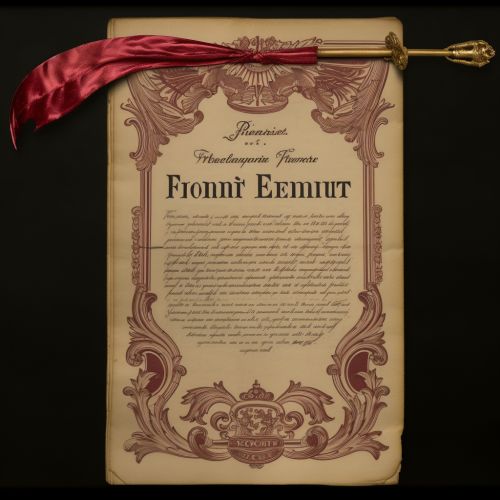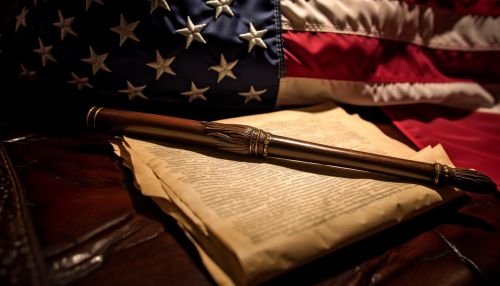Seventh Amendment to the United States Constitution
Background
The Seventh Amendment to the United States Constitution is a part of the Bill of Rights that was introduced into the United States Constitution on September 25, 1789, and was ratified on December 15, 1791. This amendment primarily deals with the rights of citizens in civil cases, ensuring the right to a jury trial in certain civil cases and inhibiting courts from overturning a jury's findings of fact.
Text
The text of the Seventh Amendment is relatively straightforward and concise. It reads as follows:
"In Suits at common law, where the value in controversy shall exceed twenty dollars, the right of trial by jury shall be preserved, and no fact tried by a jury, shall be otherwise re-examined in any Court of the United States, than according to the rules of the common law."
This text establishes two primary rights: the right to a jury trial in civil cases and the prohibition against re-examination of facts determined by a jury.


Historical Context
The Seventh Amendment was proposed in response to criticisms of the Constitution that were raised during the ratification process. Critics, known as Anti-Federalists, argued that the Constitution did not sufficiently protect the rights of individuals and states. In response, James Madison, a Federalist and one of the primary authors of the Constitution, proposed a series of amendments that would become the Bill of Rights.
The Seventh Amendment specifically addressed concerns related to the judicial system. Under the British legal system, which had governed the colonies prior to the American Revolution, civil cases were often decided by judges rather than juries. Critics of the Constitution argued that this system allowed for potential abuses of power, as judges could be influenced by the crown or other powerful entities. The Seventh Amendment was proposed to ensure that American citizens would have the right to a jury trial in civil cases, providing a check against potential judicial tyranny.
Interpretation and Application
The Seventh Amendment has been the subject of numerous court cases and legal debates. Its interpretation and application have evolved over time, shaped by changes in society and legal thought.
One of the key issues in interpreting the Seventh Amendment is the phrase "Suits at common law." This phrase has been interpreted to refer to cases that would have been heard by a jury under the English common law system at the time the amendment was adopted. This includes most tort, contract, and property cases, but does not include cases that would have been heard by equity courts, such as injunctions or divorces.
Another key issue is the prohibition against re-examination of facts determined by a jury. This has been interpreted to mean that appellate courts cannot overturn a jury's findings of fact unless there is no reasonable basis for the jury's decision. This principle, known as the "clearly erroneous" standard, provides a significant degree of deference to juries and is a key aspect of the Seventh Amendment's protection of the right to a jury trial.
Impact and Significance
The Seventh Amendment has had a significant impact on the American legal system. It has helped to shape the role of the jury in civil cases and has influenced the development of legal doctrine and procedure.
One of the key impacts of the Seventh Amendment is its role in preserving the jury as a fundamental institution in the American legal system. By guaranteeing the right to a jury trial in civil cases, the Seventh Amendment has helped to ensure that ordinary citizens have a role in the judicial process. This has been seen as a key aspect of democratic governance and a check against potential abuses of power.
The Seventh Amendment has also influenced the development of legal doctrine and procedure. Its prohibition against re-examination of facts determined by a jury has shaped the role of appellate courts and the standards for appellate review. This has had a significant impact on the development of legal doctrine and the operation of the judicial system.
